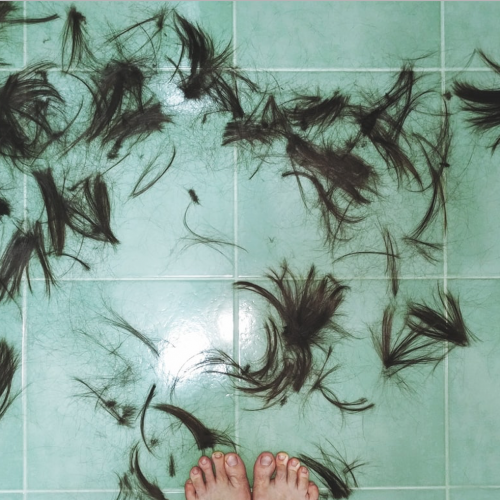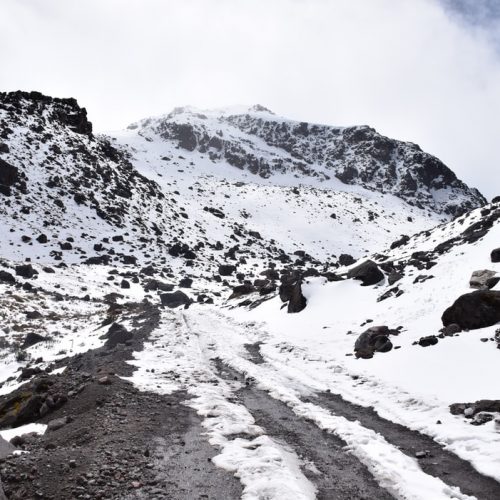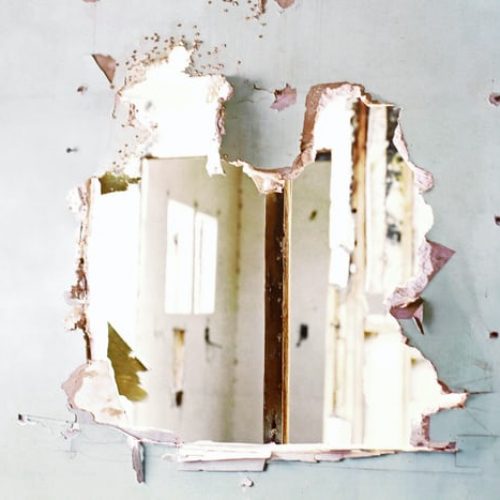My brand-new sneakers are white and radiant. My mother bought them a few days ago, and this is the first time I get to wear them. (I have come to refer to the events that surrounded them as “The Incident with the White Sneakers.”)
The man said to meet him near the train station in front of McDonald’s. (I was twelve. My family had fled the brutal repression of a popular uprising, and we’d been living in Paris for a couple of months.) It’s early spring. The sky is intensely blue. (On cold, crisp days like this, things and people were clearly outlined. The rest of the time, they were hostile shades, barely there. I spent most of my time in my head.)
I’m in the metro. Noon: the carriage is empty. I gaze lovingly at my white sneakers. They glow, for they have been enchanted by a witch. (I was lonely; deep forests and witches and spaceships made Paris a slightly less scary place.)
I’d met the man online, in the halls of a yellow and white chatroom for gamers. (In the twenty years since, it has turned into a hotbed for a distinctive, teenage brand of the French alt-right.) It’s a cozy place, a tavern where one meets fellow travelers around the fireplace. I spend a lot of time there. This man—no picture of him, barely a name—showers me with attention and says that I am special and, indeed, I am, just look at my white sneakers and me riding the metro and tell me I’m not special. (That we met online is so textbook, I refused for years to name the incident for what it was.)
I’m in the metro, feeling not-very lonely for once. My white sneakers shimmer. He lives in another city. He’s on his way somewhere and has a couple of hours to kill in Paris. That’s what he said. We meet. (I don’t remember that moment. I talk and nod, but really, I am on a spaceship, and I’ve got my feet up on the control panel, white sneakers shimmering like the stars behind them.) He suggests we grab a burger. (We’re lazily orbiting a forest planet, admiring its galaxy-famous trees, titanic things that pierce the stratosphere.)
As I reach out to pay at the counter (money I had stolen from my mother’s purse), he says: “This one’s on me, you’ll pay me in kind later.” (In French: payer en nature, which sounded to me like a frolic in purple and white fields of alien flowers.) We eat. Then, we go for a walk. (I don’t remember what his voice was like, but it had a quiver to it. I would barely recognize him today, except for the droopy lips, trembling voice, and something in his eyes that clashed with the radiance of my sneakers.)
We’re walking down the Boulevard Montparnasse. All of a sudden, as if it had been planned, a door opens, and a little old lady shuffles out. He waits a half a second for her to turn the corner, uses his foot to keep the door ajar, and shoves me inside. And there we are, on the last floor, sitting on the staircase, two friends, talking.
“Let’s get comfortable.” He smiles.
(How repulsive I found him: he was older, and had a chin so weak that his face looked like melted caramel. But he was, well, there, and I was a polite child, and I had said I would meet him, so I couldn’t just leave now, could I?)
And then in one fell swoop he says, “I want to kiss you” (I did not want to), and he is upon me, and I am keeping my eyes wide open (I did not say no), and it tastes like lemon, something sour, and I am staring at his closed eyes while he eats me with his droopy, mushy lips like an octopus (desire makes people look disgusting, greedy), and beyond his closed eyes and his hair (the hair I remember, spiky), there were my white sneakers, new but dimming, dimming, dimming—this is not something I’d want to do ever again (I see that look whenever a man leans in, eyes closed, to kiss – repulsive). Wet biscuit lips are upon me (I remember, more than anything else that followed, the taste of it, that first burst of surprise and disgust), an old sponge sucking at my tongue, and then a woman comes up the stairs, we scramble to make ourselves presentable, we say hello. (Meanwhile, we’ve landed on the forest planet. Alien children dance in meadows and around the trees.) She disappears, and he trembles, he exhales, he moans, (but I did not say no) and then, he notices me shaking (he grimaced, I recall; greed in the lines around his mouth) and he reaches out with his mouth to swallow, and now, it’s all over. (He devoured a part of me that was very secret, the part that gave a radiance to my sneakers, lapping up the witches and the forest planets and the fields of alien flowers.)
*
I am on the way back home. I am happy, proud as a peacock. I am very special, indeed. But in my mouth, I taste lemon—sour and gone wrong. From my seat on the metro, I stare at my white sneakers, propped across from me. They no longer radiate, but give off a soft glow. I am home. (I had never been gone for so long. What lie did I cook up?) The taste of lemon, a burst of something unwanted, is still in my mouth. Feeling less of a peacock now.
I am in the bathroom. I brush my teeth, once, twice, three times. I brush them for an hour. My gums bleed. I stare at my beautiful white sneakers.

Karim Kattan
Karim Kattan is a Palestinian writer and researcher. His first collection of short stories Préliminaires pour un verger futur was published in 2017. His PhD dissertation in comparative literature, which he completed in 2020, explores the emergence of the desert as a literary landscape in the Mediterranean region. His novel Le Palais des deux collines is forthcoming in 2021.





